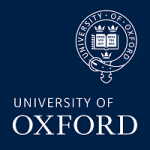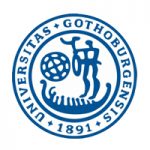项目介绍
About the course
The Oxford-MRC Doctoral Training Partnership (DTP) provides comprehensive fully-funded support for graduate students undertaking medical research in any area within the MRC’s remit, leading to a DPhil in Interdisciplinary Medical Research.
The MRC Doctoral Training Partnership (DTP) is a postgraduate research training programme, led by the University’s Medical Sciences Division and the Mathematical, Physical and Life Sciences Division, including several MRC Centres and Units, with external associated partners MRC Harwell and Diamond Light Source.
MRC DTP students undertake DPhil study in any area within the remit of the MRC. Typically, approximately 25 new students are funded each year through the partnership, undertaking projects across the medical sciences, with a particular focus on four areas:
- Infection and Immunology
- Neuroscience (incorporating Psychology and Psychiatry)
- Cancer
- Population health, genomics and genes.
You will be admitted directly onto a research project with one of the University’s world-leading scientists, who will act as your supervisor. You will either choose a project or design your own project in collaboration with your proposed supervisor. In either case, you will be expected to play an active role in shaping your project over the course of the DPhil. Graduate students play a valuable part in life of the department in which they are based and are encouraged to be involved with the scientific and social life of the department at all levels. In addition, as part of a wider MRC DTP cohort, you will have access to a wide range of DTP training and activities.
Your training will be tailored to your particular needs, drawing from the vast range of training available at Oxford and covering both specialist scientific methods and techniques and transferable skills. Much of your scientific training will take place in the lab, where you will be trained by your supervisor and members of the lab team in a variety of techniques and protocols. As a member of the Medical Sciences Graduate School you will have access to a comprehensive programme of Medical Sciences Skills Training. You will attend training sessions specifically for DTP cohorts, including induction events and termly discussion forums. You will have access to supplementary funding for high-cost training and to support your research and career progression. You will have the opportunity to apply for internships and to contribute to shaping the MRC’s future strategic plans through student engagement in the leadership of the Oxford-MRC DTP and in MRC-led activities.
Supervision
The allocation of graduate supervision is the responsibility of the Medical Sciences Graduate School and it is not always possible to accommodate the preferences of incoming graduate students to work with a particular member of staff. Under exceptional circumstances a supervisor may be found outside the department leading the course.
Your DPhil studies will be guided by a specialised team led by an academic supervisor. DTP students also have one or more formal co-supervisors, who can provide additional scientific advice on their specialist areas and who will offer another viewpoint on the student’s project. As well as your supervisor, you will have the support of a Graduate Advisor, a departmental Director of Graduate Studies and the Director of the MRC DTP.
Assessment
All students will be initially admitted to the status of Probationer Research Student (PRS). Within a maximum of six terms as a full-time PRS student or twelve terms as a part-time PRS student, you will be expected to apply for transfer of status from Probationer Research Student to DPhil status. This application is normally made by the fourth term for full-time students and by the eighth term for part-time students.
A successful transfer of status from PRS to DPhil status will require the submission of a transfer report. Students who are successful at transfer will also be expected to apply for and gain confirmation of DPhil status to show that their work continues to be on track. This will need to done within nine terms of admission for full-time students and eighteen terms of admission for part-time students.
Both milestones normally involve an interview with two assessors (other than your supervisor) and therefore provide important experience for the final oral examination.
Full-time students will be expected to submit an original thesis of up to 50,000 words after three or, at most, four years from the date of admission. If you are studying part-time, you be required to submit your thesis after six or, at most, eight years from the date of admission. To be successfully awarded a DPhil you will need to defend your thesis orally (viva voce) in front of two appointed examiners.
The frequency of meetings with supervisors will depend on which department your DPhil is based. Commonly, within those departments based with the Medical Science Division, once a fortnight is typical.
Graduate destinations
It is anticipated that MRC DTP students follow a wide variety of career paths, including all branches of biomedical research, clinical medicine, teaching, health administration and commerce.
Changes to this course and your supervision
The University will seek to deliver this course in accordance with the description set out in this course page. However, there may be situations in which it is desirable or necessary for the University to make changes in course provision, either before or after registration. The safety of students, staff and visitors is paramount and major changes to delivery or services may have to be made in circumstances of a pandemic (including Covid-19), epidemic or local health emergency. In addition, in certain circumstances, for example due to visa difficulties or because the health needs of students cannot be met, it may be necessary to make adjustments to course requirements for international study.
Where possible your academic supervisor will not change for the duration of your course. However, it may be necessary to assign a new academic supervisor during the course of study or before registration for reasons which might include illness, sabbatical leave, parental leave or change in employment.
For further information please see our page on changes to courses and the provisions of the student contract regarding changes to courses.
录取要求
-
a first-class or strong upper second-class undergraduate degree with honours in a subject that ideally will support the chosen research path.
-
A previous master’s degree is not a condition of entry.
联系方式
电话: +44 1865 270000相关项目推荐
KD博士实时收录全球顶尖院校的博士项目,总有一个项目等着你!





